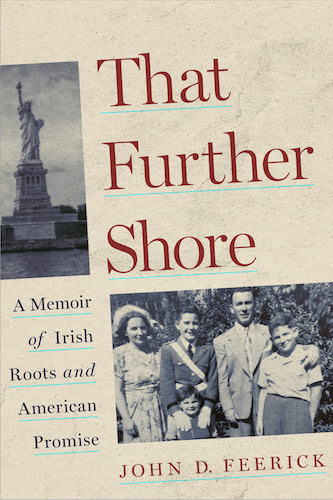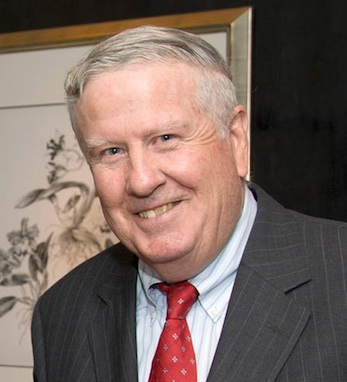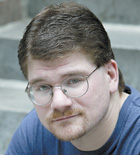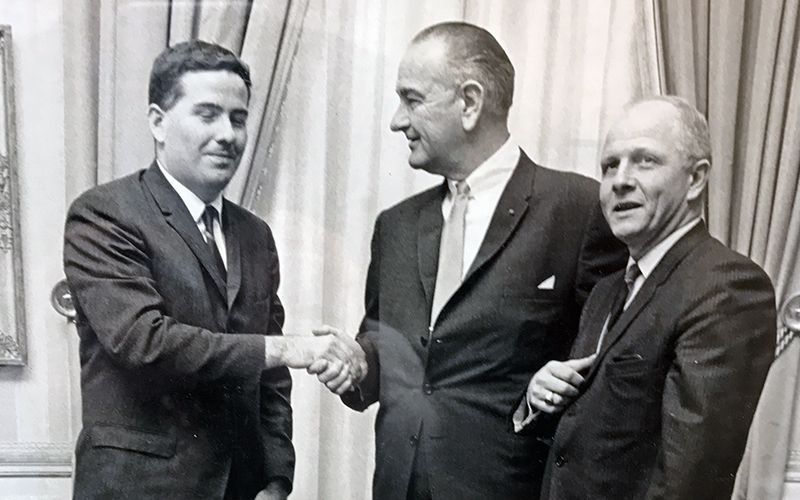For five decades, John Feerick has done his best to make sure America can deal with things at their worst.
If you read the headlines this week, you saw angry debates about what to do in the wake of protests-turned-riots in the nation’s capital. Ultimately, the House of Representatives voted – for the second time – to impeach president Donald Trump, though only after Vice President Mike Pence refused to invoke the 25th Amendment.
This became a crucial question in the wake of John F. Kennedy’s assassination – what if he had not died, but instead remained in a coma? – and Feerick played a key role in drafting the language that was ultimately incorporated into the U.S. Constitution in 1967.

Enter Feerick – a Fordham University graduate and dean, and son of immigrants from Mayo. Feerick was all over the news this week because he is the nation’s foremost expert on the 25th Amendment, which outlines the process to be followed should any president become incapacitated, and unable to fulfill the duties of the job.
“I was invited by the president of the United States, Lyndon Johnson, to come to the ceremony (and) as I look back now…it stands out as the single most important experience of my professional life,” Feerick told Irish America on Thursday, during a Zoom discussion that covered not just his timely area of expertise, but also his Mayo-born parents, his Bronx youth, and the passion he continues to bring to issues surrounding immigration and America’s future.
Fordham’s Feerick Center for Social Justice, for example, “promotes the rights and addresses the problems facing marginalized and low-income New Yorkers through the creation of strategies to reform policies, educate, and provide assistance to right wrongs,” as the organization’s mission statement puts it.
“The United States of America is a creation of immigrants,” Feerick told Irish America. “The Irish…were not well-received. We should be at the forefront of supporting appropriate immigration to the United States, not closing the doors at all.”
Feerick also discussed his emotional, recently-released memoir A Further Shore: A Memoir of Irish Roots and American Promise.
He told Irish America that his immigrant parents instilled in him the importance of education and giving back to your community.
“I spent about 10 of the 18 tears it took to write the book…trying to learn more about (my parents’) family, what it was like for them before they left for America,” said Feerick. He added: “I had a vacuum when my parents died… I can still cry at any moment because I miss them so much. In my judgment you never leave your parents, they’re always there.”
Feerick’s devotion to his family – and Ireland – comes across strongly in A Further Shore.


“When traveling in Mayo,” Feerick writes, “one glimpses the county’s past in fields, cottages, religious sites, and museums. The Céide Fields, the National Museum of Country Life, and Ashford Castle add to the specialness of a Mayo visit.”
In the end, how the past shapes the present may be the defining idea of Feerick’s personal and professional life.
How America’s past ultimately shapes its present – and future – remains to be seen.
Enjoy the interview.

Tom Deignan is an author, teacher, and columnist for the Irish Voice and Irish America (tdeignan.blogspot.com).


Leave a Reply